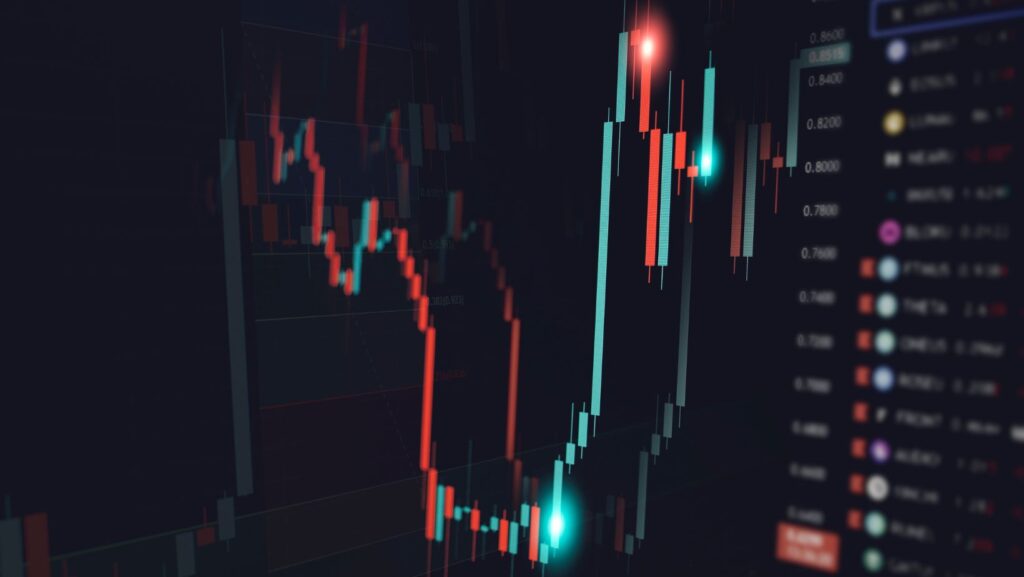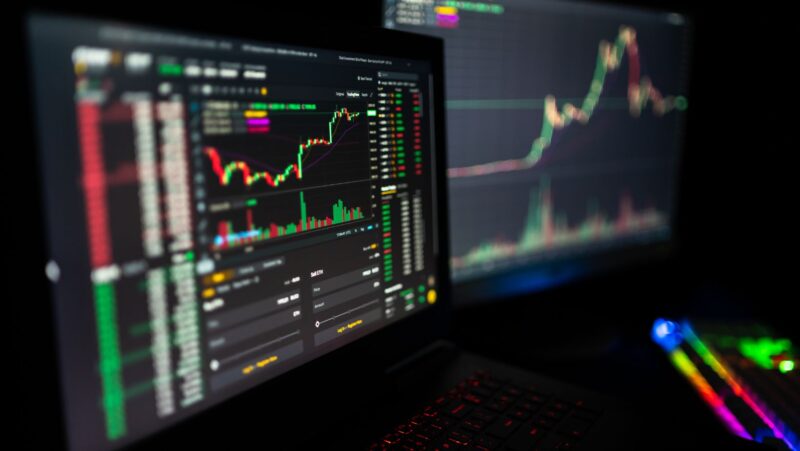
If you’re new to the world of trading, you’ve likely come across the term CFD trading. But what is CFD trading, and why has it become such a popular way to trade? In simple terms, CFD trading (Contract for Difference) is a way to trade financial markets without owning the underlying asset. It allows traders to speculate on price movements in assets such as stocks, commodities, forex, and indices. But like any trading method, CFD trading comes with its own set of benefits and risks.
In this article, we’ll explore the CFD trading meaning, how it works, its benefits, and the risks involved. Whether you’re just starting out with online CFD trading or looking to deepen your understanding of this form of financial speculation, this deep dive will give you a solid foundation for your trading journey.
What is CFD Trading? Understanding the Basics
To begin, let’s answer the question: What is CFD in trading? A CFD, or Contract for Difference, is a type of financial contract between a trader and a broker that allows the trader to speculate on the price movements of an asset without actually owning the asset itself. This means that CFD trading allows you to take advantage of price changes in financial markets without having to physically buy or sell the underlying asset.
CFDs are used to trade on a wide range of markets, including forex, stocks, commodities, indices, and cryptocurrencies. Instead of purchasing the actual asset (like buying shares of a company), you’re entering into a contract that tracks the price movements of that asset. This offers flexibility and an easier entry into global markets with lower initial capital outlay.
Here’s how it works:
- If you think the price of an asset will increase, you buy a CFD (this is called going long). Essentially, you’re entering a contract to buy at the current price with the expectation that it will increase. If the asset’s price does indeed rise, you can close your position by selling it for a higher price.
- If you think the price of an asset will decrease, you sell a CFD (this is called going short). In this case, you’re entering a contract to sell the asset now, expecting to buy it back later at a lower price. If the price drops as you anticipated, you can close the position for a profit.
The difference between the opening and closing price of the contract is the profit or loss you make. So, unlike traditional investments where you actually own the asset, you’re simply speculating on the direction of its price movement.
Key Components of CFD Trading
Let’s break down the key components:
- No Ownership of the Asset: With CFDs, you’re not actually buying or selling the physical asset. For example, if you trade a CFD on stocks, you don’t own the shares themselves, but you’re speculating on their price movement.
- Leverage: One of the major attractions of CFD trading is leverage, which allows traders to control a larger position with a smaller amount of capital.
- Short Selling: Unlike traditional investing, CFD trading allows you to short sell, meaning you can profit from falling markets.
How Does CFD Trading Work?
To better understand CFD trading meaning, let’s look at a simple example:
- Opening a Position: Suppose you want to trade Company XYZ’s stock using CFDs. You decide to buy a CFD when the stock price is $100.
- Market Movement: After some time, the stock price rises to $110.
- Closing the Position: You decide to close the position, locking in your profit. You sell your CFD contract for $110, making a $10 profit per contract.
- Profit or Loss: If the stock price had fallen to $90, you would have closed your position at a loss of $10 per contract.

This example illustrates how CFD trading allows you to speculate on price movements in both directions (up or down). It’s important to note that CFD trading does not involve actually buying or owning the asset. You are simply entering into a contract that reflects the price difference between the opening and closing trades.
To get started with CFD trading, you’ll first need to open an account with a reliable forex broker. These platforms provide access to global markets and allow traders to speculate on price movements without owning the underlying asset. Once registered, you can select your preferred instruments and open buy or sell positions based on your market analysis.
Benefits of CFD Trading
Now that we’ve covered the basics of what is CFD in trading, let’s dive into some of the key benefits of CFD trading that have made it a popular choice for traders worldwide.
Leverage and Larger Positions
One of the most appealing aspects of CFD trading is the ability to use leverage. This means you can control a large position with a relatively small amount of capital.
For example, with 1:50 leverage, you can control a $50,000 position with just $1,000 of your own capital. While leverage can amplify profits, it also increases the potential for loss, so it’s essential to use it carefully and wisely.
- Practical Tip: While leverage offers exciting profit opportunities, always trade with caution and never risk more than you can afford to lose.
Access to a Wide Range of Markets
CFD trading gives you access to a broad range of markets, including:
- Forex (currency pairs)
- Stocks
- Commodities (gold, oil, etc.)
- Indices (such as the S&P 500)
- Cryptocurrencies (in some cases)
This flexibility allows traders to diversify their portfolios, even with limited capital, as you can trade different types of assets all within the same platform.
- Practical Tip: Diversification helps reduce risk. Spread your trades across different asset classes to balance potential gains and losses.
The Ability to Short Sell
In traditional investing, you typically make money when an asset’s price increases. With CFD trading, you can short sell, meaning you can profit from falling markets.
For example, if you believe the price of Company ABC’s stock will decrease, you can open a short position on the stock via a CFD. If the price falls as expected, you can close the position and make a profit.
This ability to profit in both rising and falling markets makes online CFD trading more versatile than traditional forms of investment.
No Expiry Date
Another advantage of CFD trading is that most contracts don’t have an expiration date. This means you can hold your positions for as long as you like, provided you can meet the margin requirements. This flexibility contrasts with other forms of trading, such as options, which have specific expiration dates.
Risks of CFD Trading
While the benefits of CFD trading can be significant, there are risks involved. Let’s explore some of the key risks you should consider before entering the world of online CFD trading.
Leverage Risk
Leverage, which amplifies potential profits, can also amplify losses. If the market moves against you, the losses can exceed your initial deposit.

For example, if you’re trading with 1:50 leverage and the market moves 2% against you, you could lose 100% of your initial capital.
- Practical Tip: Always use leverage cautiously and ensure you have a risk management strategy in place, such as setting stop-loss orders to limit potential losses.
Market Volatility
CFD markets can be volatile, and prices can change rapidly. While this volatility can create profit opportunities, it also increases risk. For example, sudden market moves triggered by news events or economic reports can result in significant losses if you’re not prepared.
- Practical Tip: Keep an eye on economic calendars and news reports that might impact the markets. Use tools like stop-loss and take-profit orders to protect yourself from excessive losses.
Potential for Overtrading
Since CFD trading allows for high leverage and the ability to trade a wide range of markets, it’s easy to get caught up in the excitement of trading. Overtrading, or taking too many positions, can quickly deplete your trading capital.
- Practical Tip: Stick to a trading plan and avoid emotional decision-making. Set clear goals for each trade and avoid chasing after every market movement.
Costs and Fees
While CFD trading doesn’t involve commissions on most platforms, there are other fees you should be aware of:
- Spread: The difference between the buy and sell price.
- Overnight Financing: If you hold a position overnight, you may incur a financing cost, which can add up if you hold positions for long periods.
Practical Tip: Always factor in the spread and overnight financing costs when planning your trades, especially if you’re holding positions for extended periods.
Conclusion
CFD trading offers numerous opportunities to profit from both rising and falling markets. It’s a flexible, versatile, and highly leveraged form of trading that appeals to many traders. However, as with any form of trading, it comes with risks, particularly when using high leverage or when trading volatile markets.
By understanding what CFD trading is, the benefits, and the risks involved, you can make more informed decisions and trade with confidence. Always manage your risk carefully, start with a demo account, and practice good trading discipline to achieve long-term success in the world of online CFD trading.












